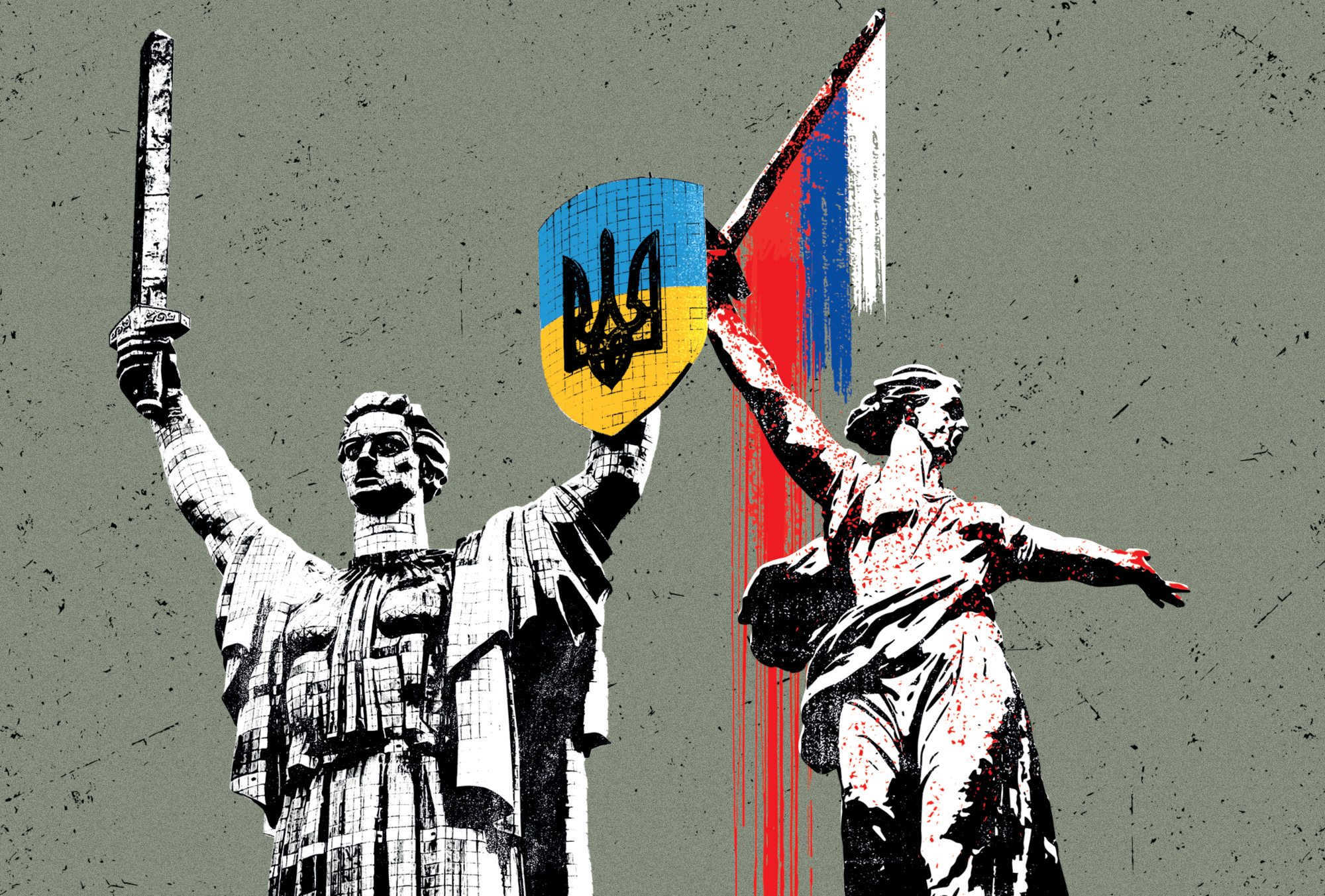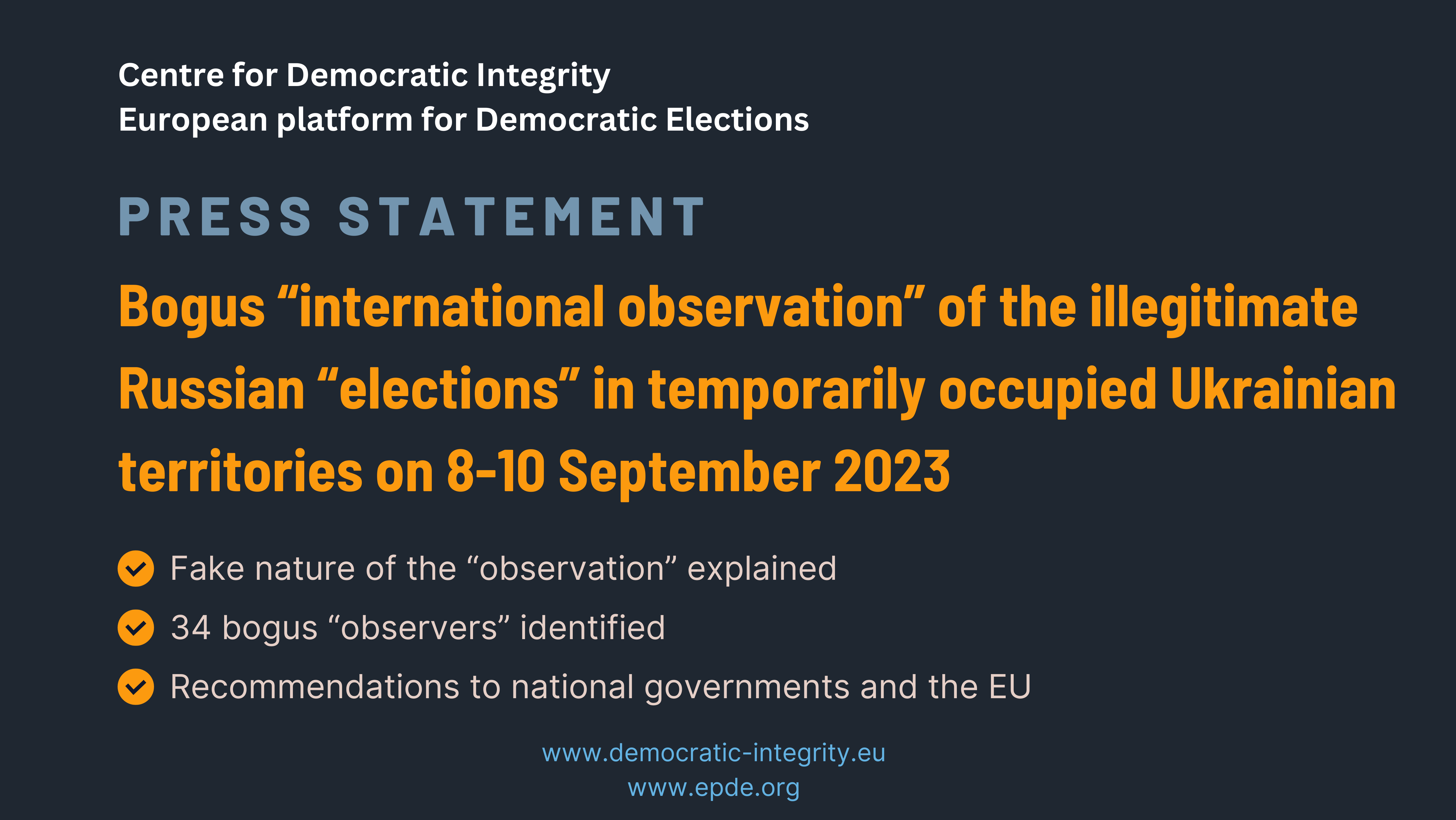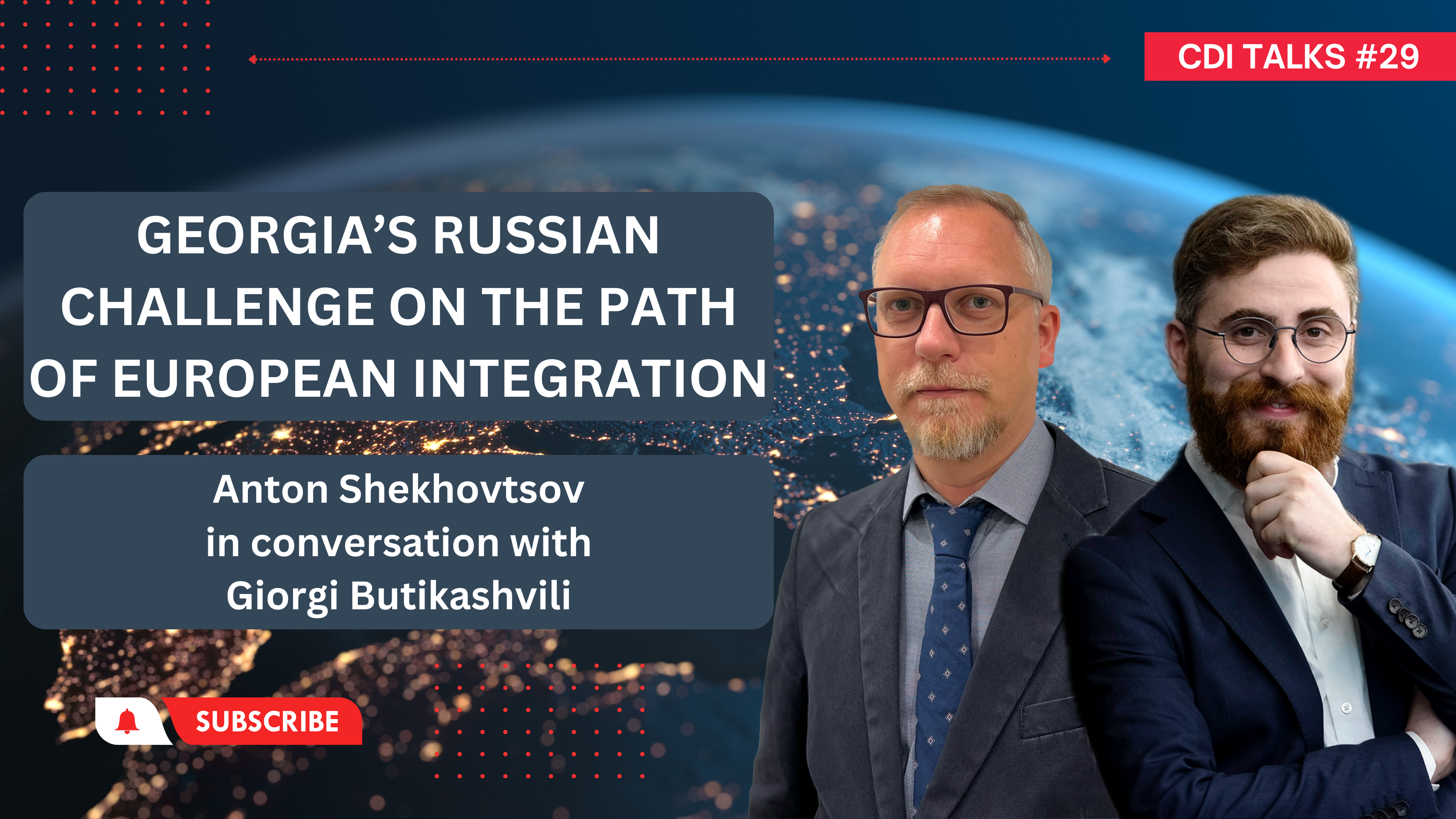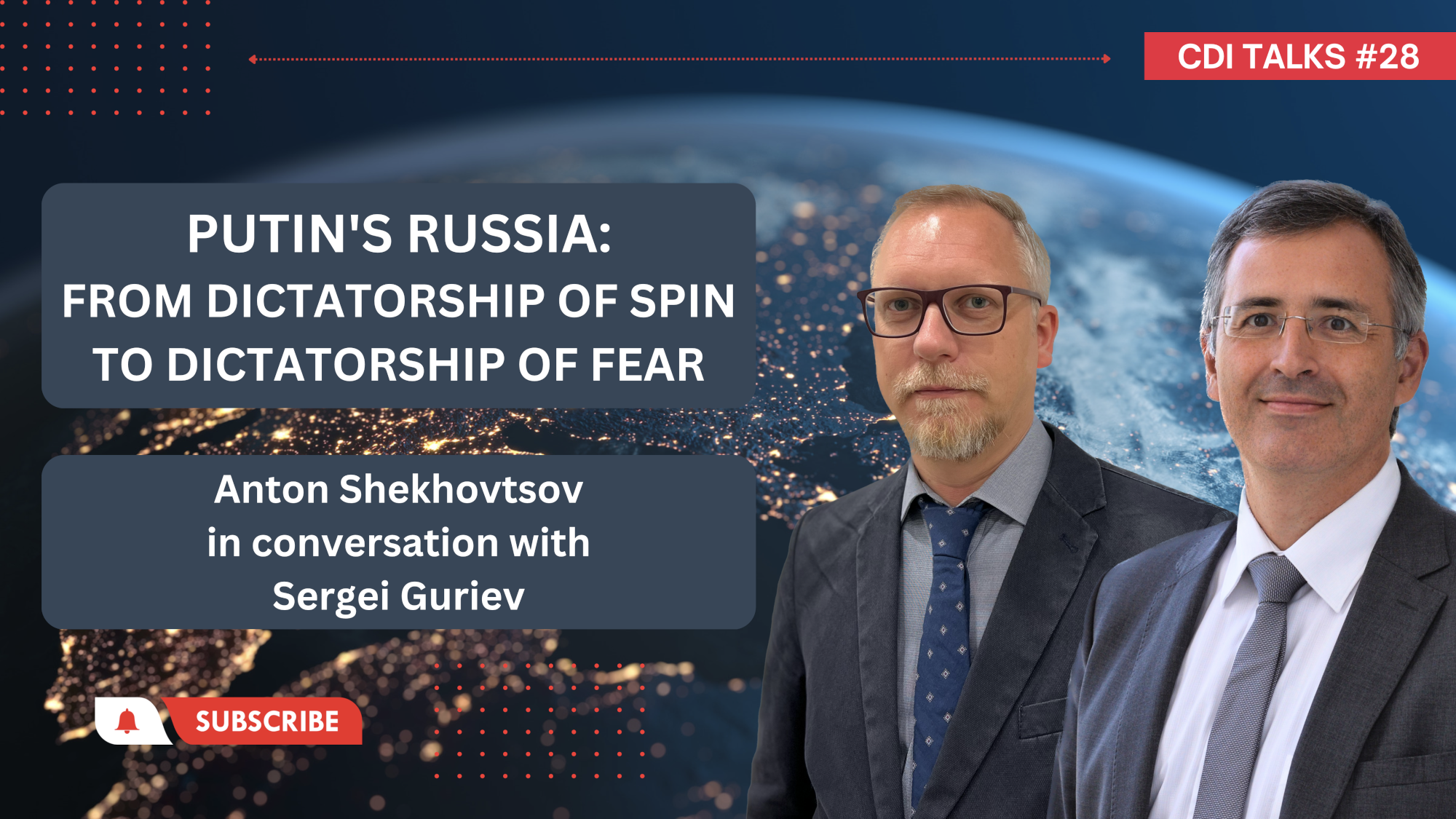Russia against Ukraine: Russian Political Mythology and the War on Ukrainian Identity
Russia’s political leadership – echoed by some external voices – often claims its invasion of Ukraine was driven by national security concerns over NATO expansion.
Russia’s focus on NATO is not just misleading – it serves as a strategic distraction from its revisionist aims: challenging the post-Cold War order and dismantling Ukraine as a sovereign nation. Central to the latter is Ukrainophobia, a deeply rooted ideological hostility towards Ukraine, embedded in Russian geopolitical chauvinism.
Commissioned by the Centre for Democratic Integrity, the multi-author study Russia against Ukraine explores the socio-cultural foundations and political manifestations of contemporary anti-Ukrainian sentiment within the Russian state and society.

The Georgian Far Right between Existential Anxiety, Political Technology, and Russian Political Warfare
In his report “The Georgian Far Right between Existential Anxiety, Political Technology, and Russian Political Warfare” commissioned by the Kakheti Regional Development Foundation (Georgia), Dr. Anton Shekhovtsov explores the emergence and dynamics of far-right movements in Georgia. The report provides an analysis of the Georgian far right, focusing on its ideological roots, its ties to Russian political warfare, and the use of political technology by the ruling “Georgian Dream” party to manipulate public sentiment.
You can download the report in PDF here.
Press statement: Bogus “international observation” of the illegitimate Russian “elections” in temporarily occupied Ukrainian territories on 8-10 September 2023
On 10 September 2023, Russian authorities held the annual “single voting day” across the country as well as in Ukrainian territories temporarily occupied by Russia in the period between 2014 and 2022. Those included the Autonomous Republic of Crimea and Sevastopol, and parts of the Donetsk, Luhansk Oblasts, Kherson and Zaporizhzhia Oblasts. In some instances, the “elections” also took place on 8-9 September.
With the aim of providing a degree of international legitimacy to the otherwise illegitimate Russian elections in Ukrainian territories, Russian occupation forces brought a number of foreigners to the occupied parts of the Donetsk, Kherson, Luhansk, and Zaporizhzhia Oblasts to perform a role of “international election observers”.
Read the press statement in full here.
RT in Europe and Beyond: The Wannabe Elite of the Anti-Elites
The Centre for Democratic Integrity is proud to present its new report, “RT in Europe and beyond”
The Russian state-controlled “Russia Today” media network was founded in 2005 and later emerged as the Kremlin’s primary instrument of influencing international audiences. The network’s editor-in-chief Margarita Simonyan openly admitted that it was waging an information war against the West and compared RT to the Russian Ministry of Defence.
Especially since 2009, when Russia Today was re-organised into RT, this media network became notorious for targeting European and other societies with polarising and divisive rhetoric, for promoting and amplifying conspiracy theories, spreading disinformation, and subverting liberal democracy.
The report “RT in Europe and beyond” is a result of the collective endeavour of academics, journalists, experts and members of civil society, who produced the first detailed exploration of RT and its services in English, French, German and Spanish languages, as well as RT’s problematic reporting on the COVID-19 pandemic and use of conspiracy theories.
The entire report can be downloaded from the dedicated page.
Café Eurasia: Anton Shekhovtsov’s conversations with Andreas Umland
CDI Dispatches: Anton Shekhovtsov on Russia’s renewed invasion of Ukraine
Russia is engaged in highly sophisticated malign influence campaigns targeting its own domestic audience – as well as audiences in Ukraine, the West and the Global South – with strategic and tactical propaganda and disinformation narratives. Anton Shekhovtsov discusses these narratives in the new episode of CDI Dispatches.
To defeat the Russian Bearhemoth and deliver justice to Europe, we need to strike at the very heart of its mythology. We need to denounce the double lie of the “Soviet victory over fascism” and “Soviet liberation of Europe”. We need to ultimately pronounce the Soviet Union as the Third Reich’s equal partner in crime and condemn the Soviet invasion and occupation of European nations.
CDI Talks: in-depth interviews on authoritarian influences in Europe
Russian challenge on the path of European integration. Interview with Giorgi Butikashvili
Anton Shekhovtsov talks to Giorgi Butikashvili, an expert on Russian political warfare at the Free University of Tbilisi, on Georgia’s views on the Russian-Ukrainian war and the Russian influence in the country
Putin’s Russia: From dictatorship of spin to dictatorship of fear. Interview with Sergei Guriev
Anton Shekhovtsov talks to Sergei Guriev, Provost and Professor of Economics at Sciences Po (Paris, France), about the transformation of Putin’s authoritarian regime since the beginning of the full-blown invasion of Ukraine in February 2022
Recent events
Putin’s “Project Mayhem”. The Socio-Psychological Drivers of Putin’s Politics of Ressentiment
It was our great pleasure to host the presentation and discussion of Professor Roger Griffin’s “Putin’s ‘Project Mayhem’. The Socio-Psychological Drivers of Putin’s Politics of Ressentiment“. Follow the link to watch the entire event in two parts.
Russia’s Annexation of Crimea Seven Years After: Why It Happened and What It Means for Europe
An online discussion of the sad anniversary of Russia’s illegal annexation of Ukraine’s Crimea featuring Andreas Umland, Margarita Akhvlediani, Natalia Gumenyuk and Martin Kragh, and moderated by Anton Shekhovtsov. Follow the link to watch the discussion.

Autoritäre Schatten in der Europäischen Union. Der Fall Österreich
Das vorliegende Paper besteht aus zwei Teilen. Der erste Teil ist eine Zusammenfassung der Ergebnisse eines mehr als ein Jahr laufenden Projekts, welches das Abstimmungsverhalten von Mitgliedern des Europäischen Parlaments hinsichtlich außenpolitischer Fragen beobachtete, um ihre Anfälligkeit für autoritäre Einflüsse zu ermitteln. Das Projekt wurde während der derzeitigen neunten Legislaturperiode (2019-2024) durchgeführt. Ein besonderes Augenmerk lag dabei auf sieben mittel- und südosteuropäischen Staaten (Tschechien, Ungarn, Polen, Slowakei, Österreich, Rumänien und Bulgarien). Für mehr Information zum Projekt besuchen Sie https://politicalcapital.hu/authoritarian_shadows_in_the_eu/
Der zweite Teil ist eine Fallstudie, die sich mit dem Abstimmungsverhalten der österreichischen Mitglieder des EU-Parlaments (ebenfalls während dessen neunter Legislaturperiode) in außenpolitischen Fragen beschäftigt.
Coronaviral propaganda against Europe
The CDI investigates how authoritarian regimes use the Covid-19 pandemic to advance their illiberal goals in Europe.
Hungary: the Success Story of Chinese Mask Diplomacy
Patrik Szicherle and Péter Krekó show how the promotion of the Chinese medical “gifts” can help Hungarian political elites to sell their pro-China policies to the public.
Event: How Russian Media Targeting International Audiences Spread Conspiracy Theories
Cooperation project: forum journalismus und medien and CDI.
Conspiracy theories are not mere myths. Backed by state institutions, they become potent instruments of political or even geopolitical struggle. This is the case in Vladimir Putin’s Russia: state-controlled media targeting the international audiences, like RT (former Russia Today), have promoted conspiracy theories aimed at discrediting and undermining liberal democratic societies. What is the place of the anti-Western conspiracy theories in contemporary Russia? Do these theories reflect the official political line? Which challenges do conspiracy theories pose to the international media?
Speakers
Dr. Ilya Yablokov, Lecturer in Russian media and politics, University of Leeds, UK.
Dr. Precious Chatterje-Doody, Lecturer in Politics and International Studies, Open University, UK.
Concept and Moderation
Dr. Anton Shekhovtsov, external Lecturer, University of Vienna, Austria. Founder of the CDI.
Event: The Geopolitical Impact of Nord Stream 2.0 on European Energy Security

The Austrian Institute for European and Security Policy, the Centre for Democratic Integrity, and the Vienna School of International Studies are pleased to invite to a panel discussion on:
The Geopolitical Impact of Nord Stream 2.0 on European Energy Security
with
Prof. Dr. Johannes Pollak
Director at Webster University
Dr. Andreas Umland
Senior Fellow at the Institute for Euro-Atlantic Cooperation (Kiev, Ukraine)
Ana Otilia Nuțu, MA
Policy Analyst on energy and infrastructure at Expert Forum (Bucharest, Romania)
Dr. Anton Shekhovtsov
External Lecturer at the University of Vienna (Vienna, Austria)
Moderation:
Dr. Werner Fasslabend
President of AIES and former Minister of Defence of Austria
Wednesday, February 26, 2020 18:00 h
Diplomatische Akademie Wien
Favoritenstraße 15A
1040 Vienna
Registration: https://www.da-vienna.ac.at/events
Russian Interference, and Where to Find It

A report by the European Platform for Democratic Elections considers elections in France, Norway, Germany, Austria, Italy, Hungary and Sweden in in 2017-2018 and identifies different factors that influence the occurrence of Russian interference in European elections.
Unique conditions
Each case of Russian interference in European elections is a juncture of unique conditions that derive from various factors reflecting realities in Western nations and Russia. When assessing Russian interference, one needs to consider whether Putin’s regime is satisfied with the prevailing political attitudes towards Russia in a European country in question, whether there are political forces that are significant enough and are ready to cooperate with Russian pro-Kremlin actors, whether meddling in the elections in favour of particular political forces clashes with other interests of Putin’s regime, whether Russia has relevant human and structural resources to interfere in the electoral process, and whether political culture is conducive to Russian influence.
Three patterns
Because the Kremlin was not happy with the projected outcomes of the electoral processes, Russian state and pro-Kremlin non-state actors interfered in the 2017 presidential elections in France and, to a lesser extent, in the 2017 parliamentary elections in Germany. However, Moscow did not have to interfere in the elections in Austria, Italy, and Hungary as the Kremlin was satisfied with the political situations in those countries. At the same time, while Moscow was not satisfied either with Oslo’s or Stockholm’s attitudes towards Putin’s Russia, it could not interfere in their elections because their political culture did not allow pro-Kremlin actors to win over any significant political forces.














